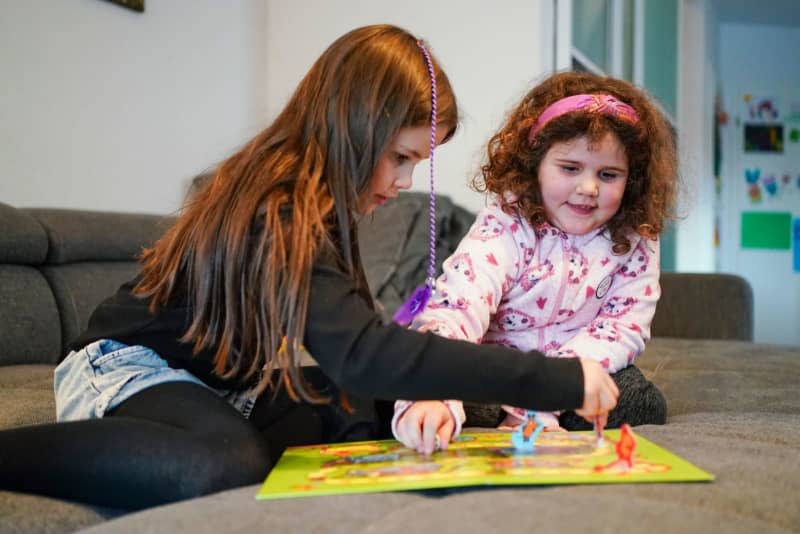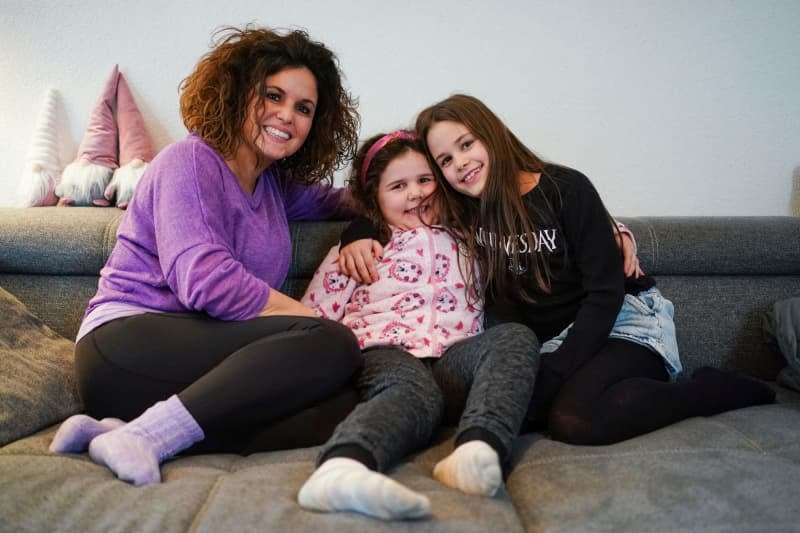German cancer doctors target 'Achilles heel' in children's tumours

Enna hops and jumps around to music and seems like all the other Dancing Mosquitos, a team of youngsters practising their moves for a festival.
It is also a chance to let off some steam for Enna, 7, as tensions run high in her life.
At the age of 4 she was diagnosed with a brain tumour, explaining why she had been suffering from nausea, vomiting and headaches.
"It was terrible, I couldn't breathe, it was the beginning of a nightmare," says Daniela, Enna's mother, of the moment she heard the news.
She was terrified that that Enna would die, an understandable fear as cancer in minors is very rare and difficult to combat due to the lack of child-appropriate treatment.
Enna's tumour is a cancer of the central nervous system (CNS), says paediatric oncologist Olaf Witt. "We see gliomas like Enna's four or five times a year across Germany," says Witt, who works at the Hopp Children's Cancer Centre Heidelberg.
After blood cancer, which accounts for almost 30% of cancers in children and adolescents, CNS tumours are the second most common type, making up almost a quarter of cases.
The diagnosis upended life in the family from a village close to Frankfurt. "I stayed at home for a year, Enna needed one-to-one care, she couldn't even walk up the stairs because of the chemotherapy," says Daniela, who usually works as a sports scientist. Enna's father Christoph helped out in the first few months.
In a matter of days, the chemotherapy led Enna to lose all of her hair and in solidarity, her parents shaved their heads too, while her sister Luisa also cut some of her hair.
A major collection of stuffed animals is also helping Enna, who picks one from her stock of more than 100 to accompany her on each of her trips to the hospital. Her favourite is a big penguin. "It can talk and move and give kisses," she says.
Around the world, some 400,000 children develop cancer every year, compared to around 18 million cases in adults, according to the WHO. In Germany, malignant tumours kill 20% of young patients, but if a brain tumour returns, that proportion increases to 90%.
A patient's chances of surviving also depend on the type of tumour they have. Among CNS tumours alone, there are more than 160 subgroups, which is both a blessing and a curse, says Witt, who heads the centre's Translational Paediatric Oncology.
"Due to the small number of patients, studies are difficult to conduct and often have to be carried out in complex international collaborations. On the other hand, subtypes are always found that respond well to medication."
Enna's glioma, caused by a genetic defect, is also a tissue change that responds to certain drugs. "It's like winning the lottery," says Witt.
Of more than 20,000 genes examined in the tumour, only one was defective, causing the growth.
That gene is a sort of Achilles heel in the tumour, one that doctors could target with particular drugs.
You can only identify the weak point in a tumour through complex molecular procedures, Witt says. Finding new drugs specifically for children is a priority, he says. "That's because tumours in children differ considerably from those in adults and require drug development tailored to them."
That process is very expensive for pharmaceutical companies, however, given the small markets for the rarer forms of cancer.
Witt wants to see companies become more willing to co-develop paediatric cancer drugs when developing cancer drugs for adults.
Enna benefited from the new molecular analysis methods within a programme that examines the tumours of more than 3,000 young cancer patients from 13 countries for whom standard therapies no longer work.
After four months of chemotherapy and 11 hours of surgery, 96% of Enna's tumour was removed. Some 200 grams of tumour had spread through her head.
That gave the family a year of calm, but then the tumour returned. "My tumour has got a friend," was how Enna described the recurrence.
By then, she was able to join a clinical trial at Heidelberg that was suited to her particular type of tumour. A year later, the growth had been reduced to the size of a walnut.
Thinking of other parents finding themselves in a similar situation, Daniela says it is best to communicate openly about what you are going through.
She set up a WhatsApp group to tell family and friends about Enna's progress. "It means we don't always have to tell everything over and over again and keeps everyone up to date," says Daniela, who now, like Enna, has a full head of hair again.
Plus, seek a second opinion from an experienced team of specialists, particularly if it is a rare tumour, she says, noting that in Germany, there are good networks and facilities for paediatric oncology.
For Enna, there have been few side effects apart from some slight weight gain. Daniela's relief is unbounded. "Enna is alive, and she's going to stay alive. That's very lucky," she says.
Plus, Enna has kept her bright disposition despite so much pain. "She can lead a normal, happy life with sports, hobbies and friends," Daniela says.
She hopes Enna's tumour will have completely disappeared in three or four years. Despite her initial fears, her message for others, is that "a cancer diagnosis is not a death sentence."


